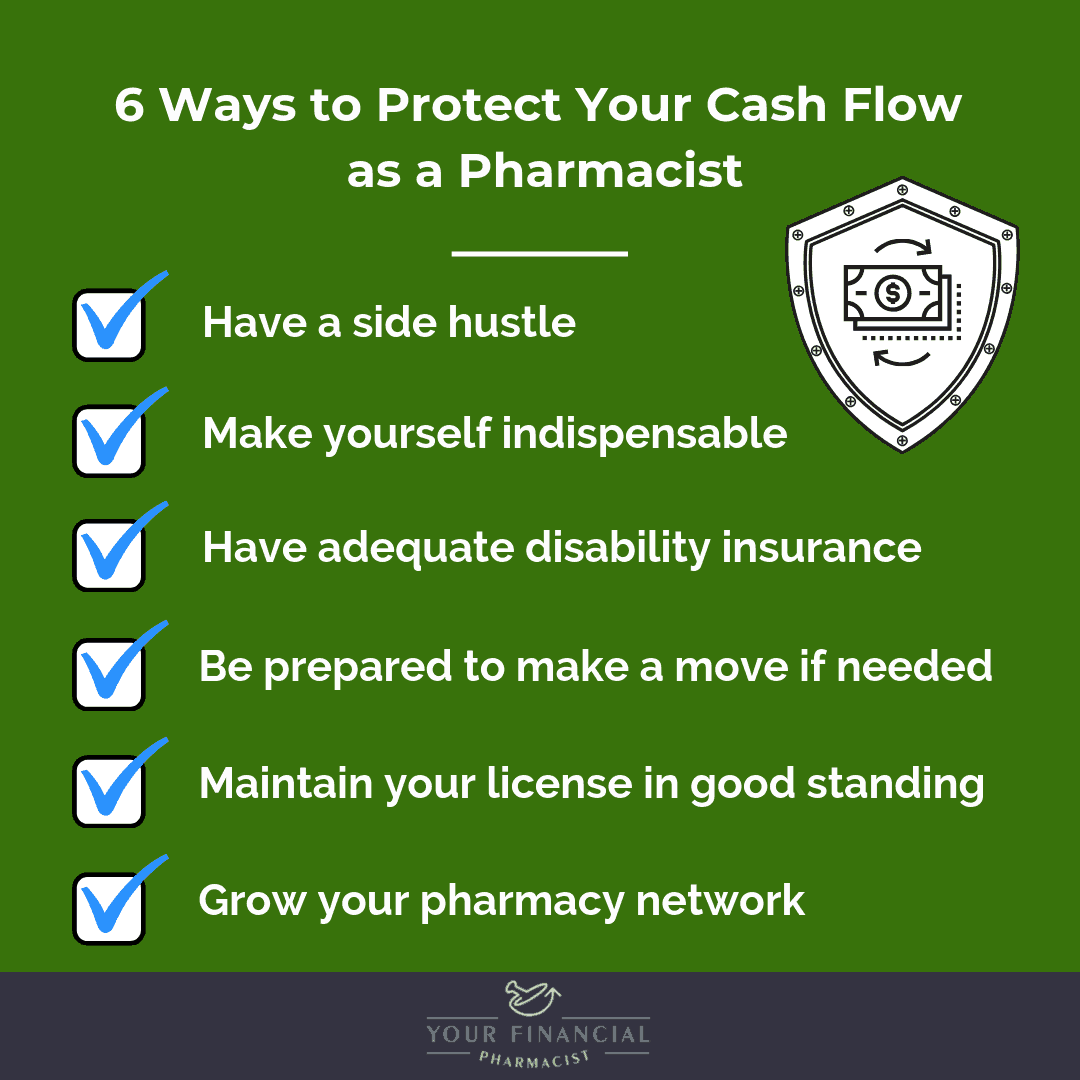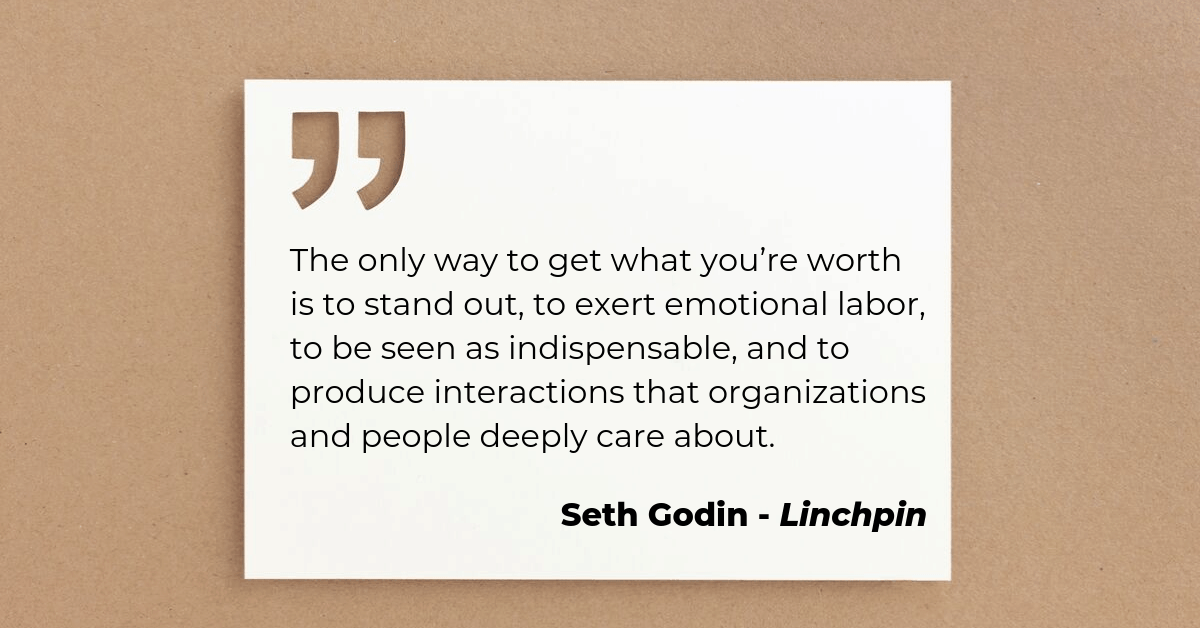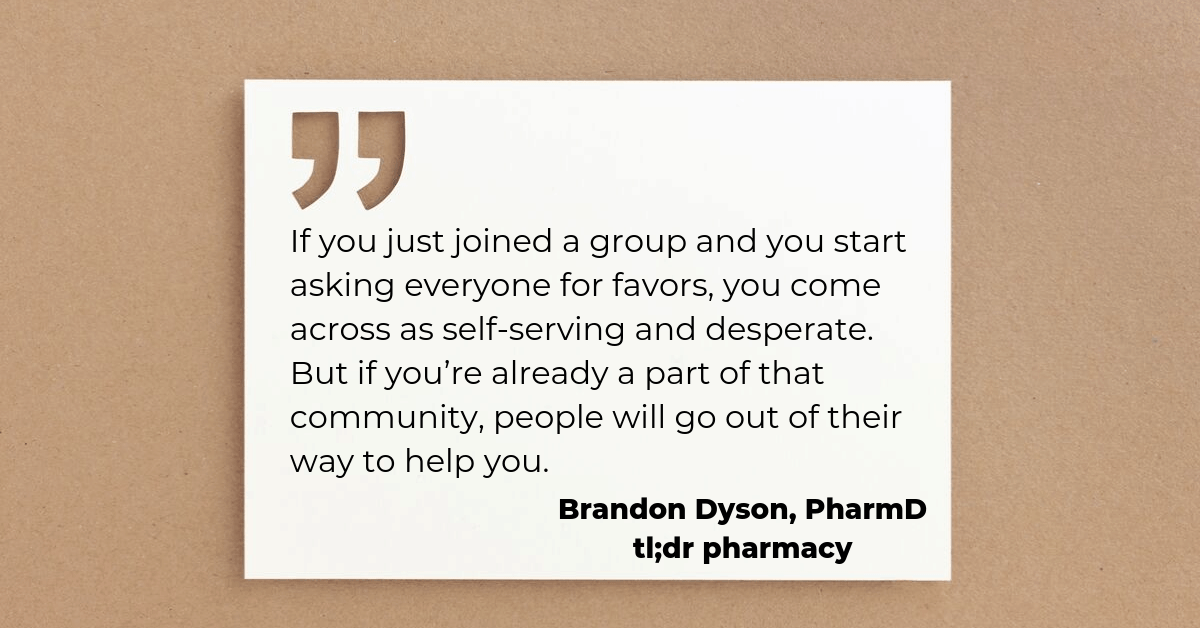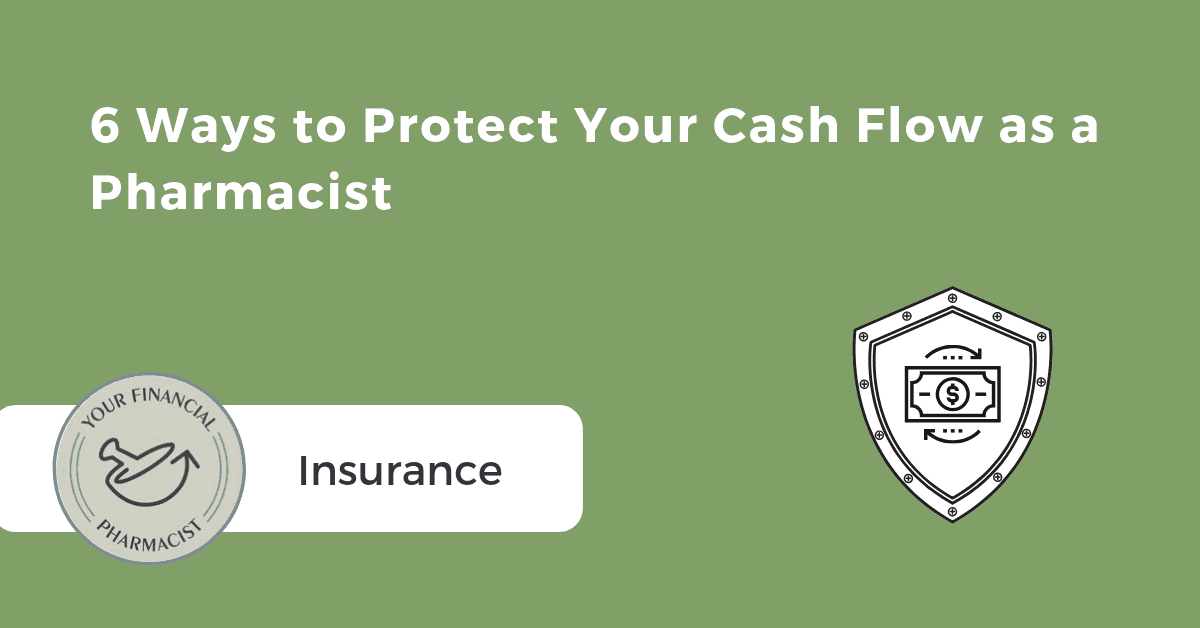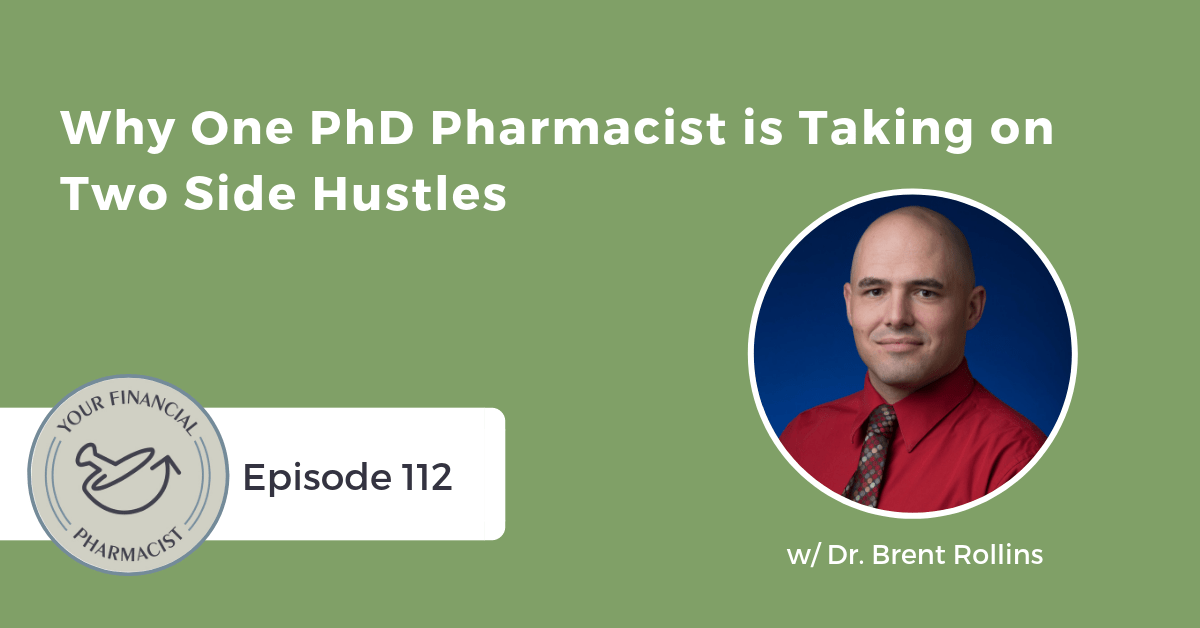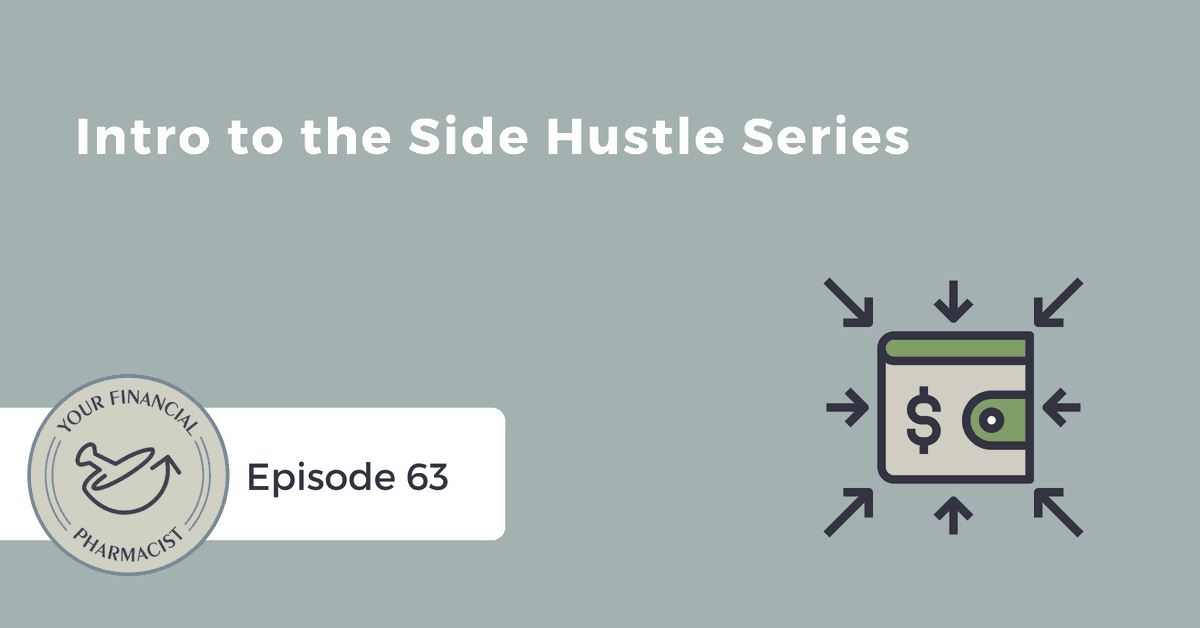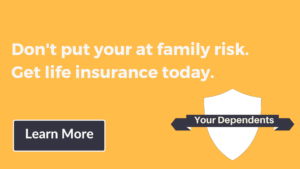Why One PhD Pharmacist is Taking on Two Side Hustles
Dr. Brent Rollins, a pharmacy graduate of Ohio Northern who obtained his PhD in Pharmacy Administration at the University of Georgia and currently serves as a faculty member at Philadelphia College of Osteopathic Medicine, joins Tim Ulbrich on the show. They discuss Brent’s personal finance journey, why he cares so much about the importance of educating students on this topic, his unique side hustle in serving as both an expert witness and covering professional football, and how he is teaching his 3 kids about personal finance.
About Today’s Guest
Dr. Brent Rollins is an Associate Professor of Pharmacy Practice at the PCOM Georgia School of Pharmacy. He received his BS in Pharmacy from Ohio Northern University and then a PhD in Pharmacy Care Administration with an emphasis in Pharmaceutical Marketing from the University of Georgia. He has published numerous peer-reviewed articles and given presentations on health care consumer behavior, particularly focusing on direct-to-consumer prescription advertising, and the scholarship of teaching. He is the primary co-author of the textbook titled Pharmaceutical Marketing and co-author of another textbook, Financial Analysis in Pharmacy Practice. He is a member of Georgia Medicaid’s Drug Utilization Review Board. In addition to his day job, Brent also serves as a consulting pharmaceutical marketing and pharmacy practice expert witness for various law firms and works as an Analyst and College Football Writer for Pro Football Focus (www.pff.com) and now UGASports.com. In his spare time, Brent enjoys spending time with his wife, Deanna, and three children – Carson (12), Camron (11), and Breleigh (8) – and coaching youth football, basketball, and baseball.
Summary
Dr. Brent Rollins joins Tim Ulbrich on this week’s podcast for a discussion covering personal finance education in pharmacy school, side hustles, and his personal story.
Brent shares that personal finance education in the pharmacy curriculum is so important because there’s a large debt load that many pharmacists carry and more students don’t know how to manage their money. He explains that the pharmacy profession is evolving. When he moved to Atlanta and was going to attend graduate school, he was able to call to obtain a job. Now, it’s more difficult to do that and pharmacists need to focus on the business side of their degree. Brent’s ideal personal finance curriculum in pharmacy administration entails a consistent approach that starts as soon as the student steps on campus. He envisions hiring directors of careers to help show students different job paths and also offer seminars and educational sessions for students to learn more about personal finance.
Brent obtained his BS in Pharmacy in 2004 from Ohio Northern University and continued his education at the University of Georgia where he received his PhD in Pharmacy Administration. He decided to take this route because of advice from a local pharmacist he knew from his hometown, Dr. Sullivan. Dr. Sullivan said that you have to look at pharmacy like a game of chess; if you’re just a pharmacist, you are only a single piece on the board. You have to find what your king piece is that allows you to move anywhere on the board. From this, Brent knew he wanted to diversify his education while also fulfilling different passions, like business and money.
Brent and his wife aren’t shy about communicating with their three children about money. He talks to them about only making purchases if you have the money to pay for it and avoid credit card debt. They speak about how to save for large purchases, but also focus on how experiencing and living life is more important than material items.
Brent has two unique side hustles and shares that side hustles are invaluable as your day job can sometimes become monotonous. He says that side hustles allow you to do something you’re passionate about while being able to step away from his daily grind. Brent works for Pro Football Focus where he collects data on football players, plays and games and will also be content writing for them this season. He is also an expert witness and primarily has two types of cases: marketing (big pharma, patents) and standard of care.
Mentioned on the Show
Episode Transcript
Tim Ulbrich: Hey, what’s up, everybody? It’s my pleasure to have on today’s show Dr. Brent Rollins, an associate professor in the Department of Pharmacy Practice at Philadelphia College of Osteopathic Medicine in Georgia. Dr. Rollins completed his BS in Pharmacy at Ohio Northern University — Go Polar Bears — and his PhD in Pharmacy Administration at the University of Georgia. Brent, welcome to the Your Financial Pharmacist podcast.
Brent Rollins: Thanks so much for having me, Tim. Pleasure to be on. Love what you guys are doing with this.
Tim Ulbrich: Thank you, I appreciate that. And in addition to sharing our alma mater, Ohio Northern, we share a passion for personal finance education and the importance of side hustles and teaching kids about money, all of which we’re going to talk about on today’s show. So before we jump into your career and your financial story, I want to start by talking about the importance of personal finance education and the PharmD curriculum. And I think we would both share the importance of starting way before pharmacy school, but we’re going to focus on the area that we have the most opportunity to impact. And as I was reflecting on our conversation several weeks back, getting prepared for today’s interview, I was struck by your passion for needing to do more when it comes to teaching personal finance to our students. So tell me a little about where does this desire come from for you in terms of why we need to be doing more for our students on personal finance education?
Brent Rollins: I think in general, it’s mainly just my own — I like looking at money. I’m a numbers guy. And as we’ll maybe find out later when we talk about the football stuff that I do, numbers are somewhat of a passion for me, and money is the primo number we all care about, in a way. And the biggest thing that I saw was just within pharmacy school myself, watching UGA as a graduate student is when you get students talking about personal finance, money, business in general, you see eyes come open a little moreso. You see a renewed interest, you see something like, oo, this is 100% relevant to me and everything that I’m going to do moving forward. Thus, I care greatly about this.
Tim Ulbrich: And why is that, do you think? I experience the same thing, and that’s what gets me so excited is the feedback from students like, wow, we need more of this. I wish I would have had that earlier. What are the gaps that you think are there right now with students. Why are they feeling this pressure and concern around this topic? I mean, obviously, the debt load, but what else?
Brent Rollins: I would say debt load is very much there. And then also I think you’re seeing more and more students who one, they haven’t really had to manage money in their life. Thus, now it’s becoming a thing, specifically for maybe a younger student who’s two years and then straight to pharmacy school and things of that nature. But also, a lot of the students who’ve been out in the workforce for two, three, four years, especially where we are at PCOM, is you have those that are maybe in their mid- to later 20s in pharmacy school, sometimes even in their 30s and this is maybe even a second career for them. And really getting that knowledge and getting a handle of it as they move forward is I think of big importance for their own personal well being.
Tim Ulbrich: So with your Pharm Ad background, we’ll talk about that here in a little bit, I’m assuming you’ll fold some of this into your existing coursework. I know some colleges embed personal finance education in Pharm Ad courses; others do nothing at all; others have standalone courses, so tell us about what you’re doing at PCOM and maybe the desires you have even going forward because I’m assuming we have students listening, we have faculty listening, they may be able to go back to their colleges and say, oh, I really liked this idea or here’s some opportunities that Brent’s thinking about that we could utilize in our college as well.
Brent Rollins: The first thing I do is in terms of actually structuring the curriculum, it’s a piece of the Pharm Ad course, much like you see in a lot of other places. But one, we don’t ignore it. And the second part of that is there’s other pieces within the course, such as the topic of entrepreneurship in general, that personal finance continually comes up and a lot of the examples that I use, even when you teach basics of accounting and financial statements, profit-loss, those examples then become a personal finance type example. So as much as I possibly can, we try to interject — because I think it’s relevant. And it helps students truly just grasp it because whether or not maybe they understand certain concepts of pharmacology and all the things that we teach from a therapeutic standpoint, every single one of them grasps personal finance in that hey, I don’t have enough money to pay x or go on x trip.
Tim Ulbrich: So Brent, one of the things I hear — and I would say that this is changing rapidly, of which I’m grateful for — is that I think there’s still somewhat of an old-school thought of there of in some places, hey, personal finance education is really not pharmacy education, it’s not the sciences, it’s not what they need to be knowing and doing to be ready as a clinician. I obviously disagree with that wholeheartedly. I mean, to me, it’s a part of professional development, and I think we have an obligation to our students. I mean, what would your response be to sentiments like that?
Brent Rollins: I’m 100% on your side. And the biggest reason I would say that is just the evolution of the profession in general to where it’s not necessarily — I mean like, for example, when I graduated, I moved to Georgia to go to graduate school, I made a few phone calls, and shortly thereafter found a place to work part-time and then eventually full-time during graduate school. It wasn’t that difficult. And now that world doesn’t exist. It’s, to me, the business of pharmacy and the world of pharmacy is much like getting a business degree where things like right time, right place, right internship, knowing the right person.
Tim Ulbrich: That network, yep.
Brent Rollins: Or hey, I’ve got to go somewhere else to work my way up to where I want to be. All these ancillary things that matter for basically the rest of professional life outside of pharmacy and some other healthcare professions, those things now matter. And that, to me, is why educating students on one, personal finance, but two, just the realm of business and how the business world works becomes much, much more important.
Tim Ulbrich: We have over the past couple years been going to a lot of colleges, and we’ll come on campus for an hour or two. And one of the follow-up questions I often get because of the energy we see among the students is the faculty will say, “Hey, Tim, what do you think this looks like ideally? This is great to have a one-hour session, maybe a two-hour session, but obviously it’s not necessarily impacting all students, and it’s not necessarily longitudinal and intentional in its design,” so if you were to think about sort of the ideal personal finance curriculum in a pharmacy education, putting time aside and resources and other things, what would that look like to you in terms of how it’s delivered, when, and at what level along the way?
Brent Rollins: To me, it would look like a consistent approach from Day 1 that students step foot on campus. And I don’t know that I see it — it might exist. This might exist, and I haven’t looked specifically. But I see colleges of pharmacy and schools of pharmacy hiring directors of career or careers. And their job is specifically to help students, show students the different career paths, provide students internship help, I mean, a lot of that stuff is a lot under Student Services at some point now, currently. But I think it becomes more of an individual focus that we are directing your career, not just educating you on how a drug works and the side effects that it causes. And thus, over the period of the consistent three years that most students are on campus, there’s seminars from different people, there’s educational sessions from financial planning, how to buy a house, all that. We actually, at PCOM, we actually do a pretty good job of that. But it’s a campus-wide Student Services type function. But it’s not a mandatory, everybody comes, it’s a part of what you do. It’s more of a hey, here’s this evening seminar from this financial planning guy. Or here’s this evening seminar from a mortgage rep. That sort of thing. I think it becomes more and more a consistent approach, and it becomes — from an ACPE standpoint — co-curricular type thing that really helps from accreditation as well.
Tim Ulbrich: Yeah, and I share that with you. I think in my experience teaching this in an elective environment and working with other colleges, I think it tends to be a hey, we have a resource here for you if you want to engage, great. But what I typically see in those environments, especially when we talk about finance and money and a topic that for many is taboo, typically those attending it are already at a higher level or have a higher interest or have a higher concern. And to your point about kind of the requirement, most of the dreams that we have at YFP is to really move the needle and trying to move this as a requirement. And co-curriculars are nice, but co-curricular often still involves a menu and a selection, and it may not be for every student. And I think there’s some level of personal finance education that should be foundational for every student. Again, I truly believe we have an obligation, and I’m hoping we can help facilitate, just like you and I are talking here, that a lot of colleges are trying to do their own thing in this, and how can we share resources and syllabi and other things? And I hope if there’s faculty listening, we could begin to make those connections to try to leverage the expertise we have of various individuals across the country — and knowing faculty are busy and not having to reinvent the wheel at each of these institutions.
Brent Rollins: 100% spot on. And I know for darn sure, I send them to your website and tell them, hey, prerequisite for coming to class today, listening to this podcast.
Tim Ulbrich: I appreciate that. Well, we always say it’s everything that we wish we would have known while we were in school, so I’m grateful for that. So before move on to sum up your personal story, both career and financial, I have to just ask you, in your role as a faculty member, but we’re in a time period right now obviously leading up to a political election coming up in the future. We’re not going to talk politics, but we have to talk forgiveness a little bit because there’s some pretty bold plans coming out. You know, Bernie Sanders has a plan that was released recently, Elizabeth Warren, and I don’t even think we have to get in on the specifics of these plans because they’re going to change over time but rather I just want to get your feedback on the concept of forgiveness. You know, is it a good thing for pharmacy graduates? Is it a bad thing? You know, who should qualify, who shouldn’t? And does it really solve the problems? I mean, what are some things that we should be thinking about when it comes to forgiveness and pharmacy graduates?
Brent Rollins: That’s an absolutely outstanding question and one that for me, personally, I don’t know the right answer. I don’t know that there is a right answer because much like — I’m just a massive proponent of two things: One, competition, and two, sort of earning and everything that you get out of this time that you have on Earth and the work ethic that you put into these things. Now, from a resource standpoint, would it be better off and students, hey, I can go do what I want and not have to worry about these things? Of course. Me personally, I didn’t have the $150,000 student loan burden that other students and a lot of the students, the majority, have, and I realize what that means. But it’s also about sort of learning and learning how to evolve and being challenged. And financial challenges are just as much a challenge as a physical challenge or as a hey, I’m 5’9” in a 6’5” world, you know, in terms of basketball or something like that. Those challenges are things that people have to learn to overcome because every day, whether we like it or not, you have to go compete. And I guess my sentiment is hey, let’s learn, let’s evolve, as opposed to just making it something that totally, in essence, you don’t have to think about. Who knows? It’s a fantastic question. There’s so many economic ramifications of it that we could go into forever and people way smarter than I that have opinions on, but it is an interesting topic, for sure.
Tim Ulbrich: Yeah, I think your point’s a good one. I mean, it’s obviously very complicated, and actually, Richard Waithe and I, Richard being the host of the RxRadio podcast, we just recently had a great conversation on this topic specifically in more detail. So I would reference our listeners to check out the work that he’s doing over there, which is fantastic. So a shoutout to him. What I struggle with — because even these two plans aside, we talk a lot on the podcast about Public Service Loan Forgiveness, and I always am encouraging people, it always has to be a conversation of the math plus. And the plus is all the other variables that often get overlooked, so when we talk about paying off debt, you have to account things like the rest of your financial plan and your spouse and how it impacts your family and how you feel about the debt. And when I think about my journey going through paying off a couple hundred thousand dollars of debt, I’m not suggesting this is for everyone, but I don’t think my financial plan on the back end would be where it is today if it weren’t for all the lessons I learned throughout that. Now, does it mean it has to be like that for everybody? I don’t think so necessarily. But I think that has to be a part of the conversation when you have a discussion like this in terms of some of the forgiveness options.
Brent Rollins: Yes, that’s 100% on point.
Tim Ulbrich: So jumping to your personal career story, you graduated in 2004 from Ohio Northern, BS in Pharm, went on to pursue a PhD in Pharmacy Admin. So why did you go that route? Share with us, our listeners, about the route in Pharm Ad?
Brent Rollins: Well, first off, we’ve shared a great professor who very much made an impact on me at Ohio Northern and who’s currently at Ohio State, and that’s Donny Sullivan.
Tim Ulbrich: Amen to that. Yeah.
Brent Rollins: And Dr. Sullivan sort of took me under his wing in a way and just showed me a different world. And for me, I was always looking for something else when I went to school. And luckily enough, I was the last class that had the choice of the BS versus the PharmD. And I knew I was going to graduate school, so that’s one year of tuition I didn’t have to pay. But a pharmacist in my hometown who owned a pharmacy, went to my church, just a great human, told me that — before I went to school, he said, “Look, Brent, you have to look at pharmacy like a game of checkers.” OK, that was a little interesting.
Tim Ulbrich: Yeah.
Brent Rollins: And I was like, “OK, so what do you mean?” And he said, “If you’re just a pharmacist, and that’s all you do, you are a single piece on that checkerboard. You can only go certain places. You have to find whatever it is for you that becomes your kingpiece —
Tim Ulbrich: Great wisdom.
Brent Rollins: — that allows you to move anywhere on the board.” And I took that with me. And I tell students all the time that same exact sort of philosophy, and that’s what led me to hey, and business and money was always something — and numbers — was always something interesting in the first place, so doing research under Dr. Sullivan, presenting at some meetings, those sort of things, it just led to that and led to exploring a graduate option.
Tim Ulbrich: I’m going to steal that, by the way.
Brent Rollins: Steal it all day, every day. It’s a great one. I like it.
Tim Ulbrich: Yeah, and it’s so timely in kind of the state we’re in as a profession now. I think it’s great wisdom and something I want to share with my kids but also students. But I think more timely than ever with some of the things that we’re facing now. So you get your PhD in Pharm Ad from the University of Georgia, so tell me about how that connects with your current role and what you’re doing at PCOM.
Brent Rollins: So one of the things — when we moved to Georgia, and it was basically — I’m originally from West Virginia, went to Ohio Northern, and then so I looked at West Virginia University and then everywhere south because I had had enough of the frozen tundra, unfortunately, at Ohio Northern. But we just, in terms of fit and faculty fit as well as just the life fit part of it, that’s why we came to Athens. And I just, I love it here. I love living here as much as anything else. And thus, so once I graduated from graduate school, looked at various academic jobs, interviewed, and then PCOM was opening just at that exact same time. And it just worked out to where I was able to come here and was offered a job here and have been here since the school was opened. So for us, it’s just — it would take someone like adding a 0 to my salary or something like that for us to move just because we love where we live so much.
Tim Ulbrich: And I think that’s a good connection and obviously, you and your wife have three children, you shared with me 12, 11, and 8 years old. And I think the academic life fits well with activities with kids, and I know your kids are active as well. And so I want to transition and use that as an opportunity to talk a little bit about how you and your wife have effectively worked together and maybe some of the things that you guys have implemented to do that well and where there’s been challenges and then also talk briefly about what you’re doing in terms of teaching your kids about money. So when it comes to this topic, we all know the data and the literature, it’s difficult for spouses to work together, to be on the same page. My wife and I have shared some of this on the podcast. So have you and your wife always been on the same page? And I’m guessing the answer may be no, but talk us through about how you practically work together when it comes to your financial plan and more specifically, how you resolve differences.
Brent Rollins: I think for the most part, we have. I mean, there’s always certain little things here and there like we’ve built two houses and we just finished building a house recently, and there’s always like, “Hey, I would like this,” kind of argument. And I’m like, “Well, hon, that’s great. But that also costs this.”
Tim Ulbrich: Right.
Brent Rollins: So you know, those sorts of things. But in general, we have always stayed on that same page, and we have a lot of the same interests in that we, for example, we have — I wouldn’t say extended ourselves, but we’ve spent just a little bit more on homes than we maybe would if we enjoyed traveling around the world or something like that because we enjoy our time at home, we enjoy spending time with our kids at home. So that was definitely something that’s helped over time. And my wife is very much, she’s not someone who’s just going to go and spend crazy amounts of money on anything. For me personally, the only thing I care about in terms of spending money is I want to be able to go out to eat when I want to go out to eat. And if I want to go to a ball game, I can go to a ball game. Outside of that, I have no sort of massive wants and desires in that standpoint. So for the most part, we have very much been on the same page. And even like for example, when I was in graduate school, I worked full-time as a pharmacist and then also was a full-time graduate student. And her ability to stay home, take care of the kids, that allowed me to do what I needed to do. And it relieved a massive burden of, hey, who’s going to pick up the kids now? All those sort of things. So given that she’s been able to do that, it’s made everything sort of fit. And now, it’s just about growing and getting better and making sure that we don’t — I think I remember the podcast you guys had a while back on lifestyle creep, making sure that that does not happen to us and that we have those same focuses and then also, now it just becomes those things as well as teaching kids.
Tim Ulbrich: So on the topic of teaching kids, you know, while teaching in pharmacy school is nice, I firmly believe — and I think you share this with me — that I think about my kids who are now 7, 6, 4 and newborn, like outside of my newborn, like they’re already starting to establish those behaviors and being aware of conversations, so I think it starts very, very early, and it starts in the home. So what does this look like for your family? And how have you and your wife approached this topic of teaching kids about money?
Brent Rollins: The biggest thing that we’ve focused on telling them and showing them is outside of, say, purchasing a car or a home that are the large, large purchases, if you can’t pay for it, don’t buy it. Like if you can’t stroke a check for it or take some cash out and pay for it, don’t buy it. Stay away from it. And that goes with credit cards and sort of teaching them what credit cards are about that hey, we — and for us, I hate credit card debt in any way, shape or form, so it’s something if it’s on there, I’m mainly using it for the points. I know I’m just going to write a check for it. And we did a lot of that when we built the house. We got a lot of points, that was nice. But you know, it’s one of those things, that’s really the primary thing. And I’ve seen that in my oldest son, who hoards money, any money that he gets, whether that be for birthday, Christmas, whatever, grandparents taking care of him, I think the only thing that they will legitimately want to spend money is if they haven’t got a pack of baseball cards or football cards in awhile, they’ll go, hey, can we go to Target? I’ve got an extra $10. I want two packs, that sort of thing. That’s about it. So we’ve shown me that look, experiencing life and living life is maybe more so way important on the scale than buying things.
Tim Ulbrich: Absolutely. Yeah, and it’s all about a balance, right? I mean, I think that’s one of the things I often think about my own kids. I tend to be on the aggressive saving, squirrel it away type of side of things, and I want my children to understand the importance and value of that, but I also want them to understand that it’s OK to spend money but to plan and for it to be intentional and balanced with other things. But to your final point there, which I think is the most important thing, is that typically, the things that have the most joy and are most rewarding don’t have a dollar sign attached to them. And they are that time that you have with family and friends and creating a lot of those memories. One of the things I wanted to ask you here on this kids topic is I just had on the podcast, it’ll be published soon, the author of a book that just got released, “Mom and Dad, We Need to Talk: How to have essential conversations with your parents about their finances.” Cameron Huddleston wrote that book. And one of the takeaways I had there was often, this issue of being able to talk to your parents about money stems from this being a taboo topic in the home with growing up. So how do you and your wife handle that? Is this something that is just an open topic? Or how do you engage with conversation in terms of money and their spending patterns and other things?
Brent Rollins: It’s very much been an open topic in our house. And we’ve not shied away — now, do we tell them, hey, this is what we have and this is what we’re going — we don’t get into maybe specifics, but certain things we very much, hey, this is what this costs. This is what you would have to do in order to get this level of money to pay for that thing. Is it really worth it? What’s the value? Does it provide such a great benefit that it’s worth that cost? So it’s more of an open conversation than anything else.
Tim Ulbrich: Yeah, and I like that. And I think that’s the point she was trying to make in the book is that yes, there’s times where you can be really intentional and have a specific conversation, but more than anything, it’s just not making it a taboo topic. So if you and your wife are talking about a home purchase or something you’re working on, like letting them hear and be a part of that conversation. The last part I wanted to transition here to is let’s talk about your side hustles because we have done a lot on the show — and credit here to Tim Church who’s done an awesome job of starting this side hustle series and featuring pharmacists’ side hustles — but you really have two unique side hustles, which we’ll talk about here in a minute. But even before we talk about what those are, I want to ask you the question of why do you think a side hustle is valuable? And why do you think that’s something pharmacists should consider?
Brent Rollins: It’s invaluable to me because so often — and we hear this from students who are applying, I see this on the message boards about admissions with pharmacy and where we as pharmacists — a wise man once told me what you have is what you spend, so you might want to do something that you enjoy. And you get into that sort of — not necessarily the melees (?), but a this is what I make, this is is what I do. It becomes monotonous in a way. It becomes, you know, just I have to do this as opposed to I want to do this. And the side hustle allows you to sort of have that passion for something, whatever that something may be. For example, a friend of mine that works — it was a full-time pharmacist across the street from me when I was in graduate school. His side hustle was as a DJ. And he would go DJ like across the country and do that. That was his thing. So he enjoyed pharmacy, but he enjoyed that and had a passion for that as much as anything. And it allows you the balance to step away from, in essence, the grind or that day-to-day so it doesn’t become as monotonous as possible. But we talk to students about that often. I know I do individually. And I’ve had a lot of students who, especially given the fact that our program is — we have sometimes an older student population, we’ve had some who already have side hustles when they come in. I remember interviewing a student who is still successful with it, had an ebay business and was buying and selling things through ebay and doing that. I’ve had other students who do homemade soaps and natural soaps and things like that. So it’s — because it’s fun. It’s a passion, it’s something that you love. And as we’ll talk about mine, I’m a sports superfreak, so that’s why I do what I do.
Tim Ulbrich: Yeah, and I think to the point that you just made there, I think what I’ve seen is in balance, in the right balance, a side hustle often makes you better at your day job because it’s giving you that little bit of a mental break, it’s allowing you to pursue some of the passions or hobbies or other things that you had. And of course, the extra income is nice to be able to put that towards other goals, but I think it’s also the value of being able to pursue something you really are passionate about. So let’s talk about your two side hustles. They’re really unique. One is you serve as an expert witness, and the other is you cover pro sports. You mentioned you’re a sports fanatic, so let’s start there since you just mentioned it. Tell us about what that is and the work that you do related to Pro Football Focus.
Brent Rollins: OK, so the first one there, Pro Football Focus, that is a company, like if anybody who watches professional football and watches Sunday Night Football on NBC, you’ll hear Chris Collinsworth talk about the PSF ranks of players or it will show it on the screen when they introduce the players. So that is a company that I work for, Pro Football Focus. It’s a company that was started initially by a man named Neil Hornsby, who was actually from England, and basically, it looks at every player of every play of every game. And we collect absolute mountains of data and now have — when I first started, so this will be my fifth season working with them — but when I first started, I think we had like 13 or 14 NFL teams as clients and a few college teams. Now we have all 32 NFL teams as clients, and we have over 60 college programs that basically, in essence, use our data and use — it helps coaches, it helps anything and everything you can think of in the realm of preparing for and playing a football game from a data and analytics side. So for me, I get, in essence, paid to watch football and write about it.
Tim Ulbrich: Something you love, I mean, that’s awesome. Hey, without sharing specifics, obviously, is it a contract where you’re utilized hourly or for a season or for content you produce? How do those relationships typically work?
Brent Rollins: The contract part of it I think will actually start this year in terms of the writing part and getting reimbursed or paid for providing content. But the rest of the data collection-wise, it really depends on what you’re doing. Certain things, it’s you just do it, and thus, you get paid for it say on a per-play basis because obviously, some games have more plays than others. But the other part of it, some of it’s accuracy-based. Some it’s hey, how accurate are you? Because if you’re not doing a very good job and not accurate enough, it’s kind of worthless to pay you for it, in a way. So there’s some baseline level, and then you get paid more for being insanely accurate with what you do.
Tim Ulbrich: And what I love about that example, before we talk about the expert witness, is it’s completely unrelated to pharmacy. It’s something you’re passionate about. But you can translate, obviously, into some side income and the rest of your goals. So let’s talk about the expert witness. That’s something we haven’t talked about on the show, and I know we’ve wanted to before, as I think this could be an opportunity for other pharmacists to pursue. Tell us about what that looks like and how you got involved in that.
Brent Rollins: So initially, so my PhD’s in Pharmacy Administration, but my focus is marketing. And it was the area of passion that I wanted — you know, you can do economics, you can do health outcomes, things like that. Marketing was the one that was I loved the most and pursued that passion. And when I was in graduate school, my major professor was involved with a very, very large case that involved the Department of Justice, various state attorney general’s offices, all sorts of other things, and I was asked to help in certain aspects of that work. And through that, it’s just, it grows. And you have that working relationship with that person, you do more and more and more. It gets to the point where hey, my major professor, he’s swamped, and then hey, just talk to Brent initially. And then finally, once you do one, and you have a series of attorneys that say, ‘Hey, we need your opinions on this matter,’ once you do one, once you’re deposed, once you go through that process, now you get more phone calls here and there. So it just has evolved over time, and I’ve done more and more of it. I do primarily two areas of casework: One is in marketing, so those are big pharma cases. I’ve even done like a class action suit that was a marketing thing and some other variety of things that are marketing-based, patent litigation, things like that. And then also standard of care cases, which I don’t like doing as much as the other because I was trained in marketing and I get to use that. But the standard of care cases are interesting because it’s one of those things where we as a profession almost in a way have to police ourselves and just say, ‘Hey, look, there’s a certain standard that we need to have.’ Now, it doesn’t necessarily mean that I am in any way, shape, or form attacking pharmacists. I don’t. I don’t want to. I want everybody — I don’t want to have any of those cases. I don’t want people to mess up. But sometimes, they do. And someone needs to take a look at that and see if there are processes involved. And if any chance I get, it’s like, hey, let me defend the pharmacist here. They did their job, and this is not on them. So it just depends on the case. But I do get calls for those various cases as well.
Tim Ulbrich: That’s great. And I appreciate you sharing those two examples. And as I mentioned, I know the side hustle is something that we’re continuing to just try to feature different options. I mean, there’s unlimited options out there, so obviously the goal is to get people thinking. And I appreciate you taking time to come on the show to talk about personal finance education for students and for sharing a little bit about your career journey as well as the side hustle. So before we jump off, one of the questions I like to ask our guests on the show is, is there a book or a podcast or a resource that either has inspired you or that is currently inspiring you that you would recommend and share with our audience?
Brent Rollins: Well for me, obviously, like I said, sports superfreak, so most of the things that I do listen to or read are sports-related.
Tim Ulbrich: Yeah.
Brent Rollins: But from a personal finance standpoint, I think you’ve touched on it and talked about it before, but the book that really changed how I do what I do and what we do as a family for personal finance was David Bach’s, “The Automatic Millionaire.” And that was the first one that really — because I even started as soon as I graduated from school setting up those things where it came out instantaneously on certain days of the month, money comes out.
Tim Ulbrich: Automation.
Brent Rollins: And everything gets automated, it’s still to that way to this day. And you just don’t worry about it. It’s not something — well me, sadly, I check most all of these accounts daily, unfortunately. It’s an OCD-ness. But it was one that, you know — and I do that with students. We go through the latte factor, I’m going to pick on you that has the Starbucks cup in class today. We do various things in class that show like for example, just messing around with students, hey, this guy, you’re the bachelor guy, right? You’re the one that has the bachelor pad, you’re in Barkhead (?), sort of the ritzier area of Atlanta, and you’re hanging out and this is all — versus this person over here who’s in the ‘burbs, maybe with kids, and let’s look at your financial portfolio. So that was really the book that changed a lot of things for me.
Tim Ulbrich: That’s a great recommendation, “The Automatic Millionaire” by David Bach for those of you that haven’t read it. We also have talked a lot on the podcast about automation. Episode 057, we talk about it in great detail about the power of automating your financial plan, so I’d recommend that to the listeners as well. So Brent, thank you so much for taking time to come on the show. I appreciate your passion for this topic, I appreciate you sharing your journey. And as always, to the YFP community if you liked what you heard on this week’s episode of the Your Financial Pharmacist podcast, please leave us a review and rating in Apple podcasts, iTunes, or wherever you get your podcasts each and every week. Have a great rest of your week.
Brent Rollins: Thanks, appreciate it.
Recent Posts
[pt_view id=”f651872qnv”]
